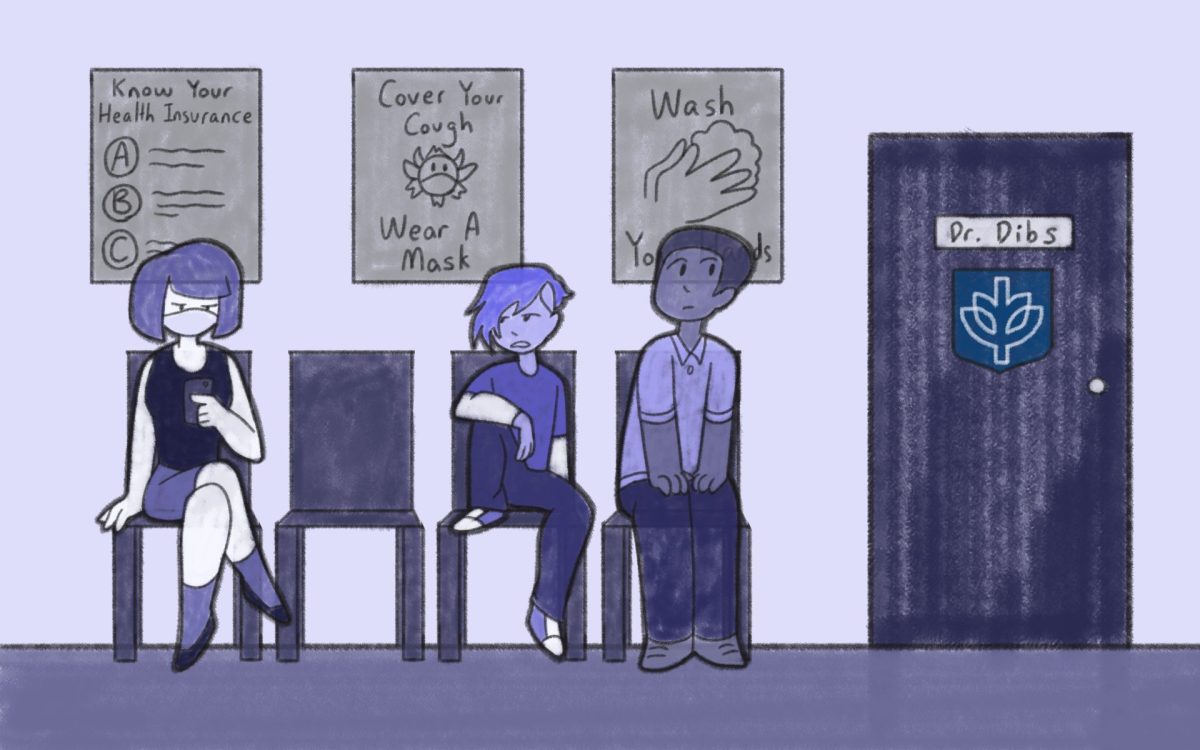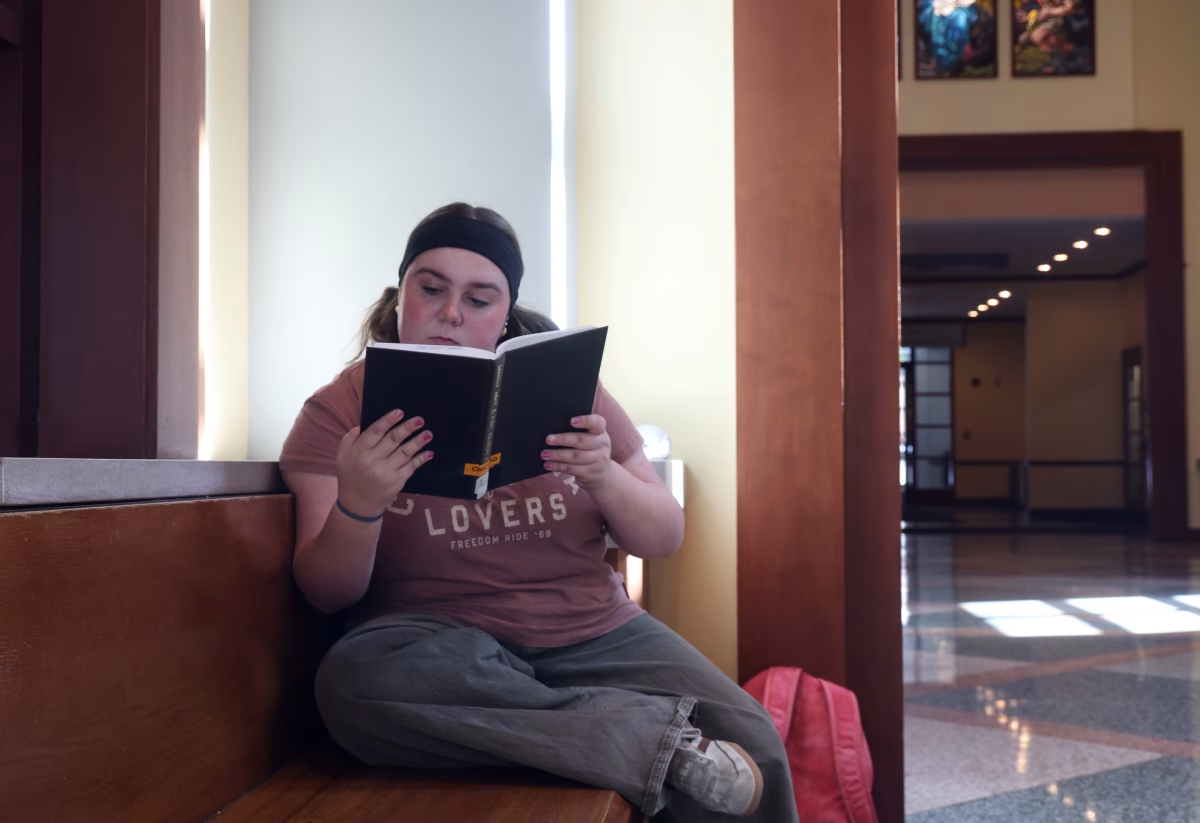For DePaul sophomore Victoria Gomez Meza, not having health insurance is a constant worry for herself and her family.
“That was something that my parents were really stressed about. … I don’t have insurance, like what am I going to do?” said Gomez Meza, a first-generation college student from out of state.
After learning that the university will offer students a health insurance plan for the next academic year Tuesday, Oct. 24, Gomez Meza said she was relieved.
Kimberlie Goldsberry, associate vice president for Student Affairs, told The DePaulia the university chose a health insurance plan provided by UnitedHealthcare, part of UnitedHealth Group, a multinational health care and insurance company based in Minnesota.
Gomez Meza, who also serves on the Student Government Association (SGA) as the senator for first-generation students, said she believes having a student health insurance plan will help increase retention and draw more international and first-generation students to DePaul.
Unlike most four-year higher education institutions in the Chicago area, DePaul has not provided health insurance coverage to students since 2015.
“I think it definitely … makes DePaul look better because they offer those things and show that they actually care for the student other than just their education,” Gomez Meza said.
Until the 2014-15 school year, the university provided health coverage through Aetna Student Health, an administrator and insurance broker that provides health insurance programs for college and university students at affordable prices.
The new plan costs $2,400 annually for three-quarters of coverage, or $800 per quarter, and will extend for all 12 months of the year, according to an update shared by the university Oct. 24.
This amount is notably lower than what students paid for coverage through Aetna Student Health during the 2014-15 school year when the student-only rate was $2,981 annually.
Other city universities that receive coverage through UnitedHealthcare have significantly higher rates for premium plans, and prices vary for undergrad and graduate students.
Loyola University Chicago’s plan has premium rates starting at $3,684 annually for student-only coverage for the 2023-24 school year. Similarly, The University of Chicago (UChicago) charges $4,917 annually for the student-only plan.
Himali Bhandari is a graduate student and member of the Student Health Insurance Task Force formed in spring 2022 to research and provide recommendations to identify an insurance plan. Bhandari said the task force’s main goal was ensuring affordable coverage for all students.
“Our whole point was, if students can’t afford it, then there’s no point,” Bhandari said.
This fall, an advisory committee for the task force — created in response to repeated student requests for university-sponsored coverage — also helped identify a preferred provider. Goldsberry said when sending out the requests for proposals, the university looked at whether plans covered local hospitals and providers typically frequented by DePaul students.
Starting next fall, all degree-seeking students will be automatically enrolled in the health insurance plan with the option to opt out if they have coverage through an individual or parent or guardian’s plan. The $800 quarterly health insurance fee will be added to each student’s tuition bill. The fee will only be removed if alternative coverage documentation is approved.
Goldsberry said this rate is fixed for the first 12 months, meaning it could change in subsequent years.
While students are excited to have the option to receive university-sponsored coverage, Gomez Meza said she has had frequent discussions with students concerned about how the new plan will affect their tuition bill next year.
“I think that makes them very concerned about being able to come back,” Gomez Meza said.
She said she often helps students find scholarships to offset the cost of tuition. She believes there should be more university efforts to find financial aid opportunities, given the addition of insurance costs.
“The school in general, has to work on advocating for more scholarships … so students can feel confident that they can keep going to school,” Gomez Meza said.
Though price helped determine DePaul’s health insurance plan, the university has not disclosed what services will be provided under the new plan, beyond that UnitedHealthcare “will offer a comprehensive and competitive health insurance plan with physical and behavioral health coverage,” according to Goldsberry.
Bhandari said, when looking at potential health insurance plans, mental health coverage was another of the task force’s top priorities.
Anthony LoSasso, a DePaul professor and chair of the department of economics whose research involves health policy and insurance, said the insurance plan must cover essential health benefits under the Affordable Care Act (ACA).
“They might offer a narrow network, [meaning] you can only go to these providers, but they can’t offer a skinny benefit in the sense of like, ‘We’re not going to cover your mental health, but if you break your arm, you’re fine,’ LoSasso said. “I don’t think they can do that.”
Some of the “essential benefits” listed under the ACA include doctors’ services, inpatient and outpatient hospital care, prescription drug coverage, pregnancy, childbirth and mental health services. Dental coverage is not required for adults under the ACA.
LoSasso said insurance plans with lower premiums typically have higher deductibles. However, most plans have caps on the amount of out-of-pocket spending depending on the user’s income level.
“They’re emphasizing affordability … to DePaul, but also the student and somehow not restricting access to care,” LoSasso said. “So I think they’re going to have to walk a tightrope there.”
UChicago’s student health insurance plan with UnitedHealthcare has a $400 deductible for in-network care and an $800 deductible for out-of-network care, in addition to the premium fees. However, the annual maximum fee for in-network costs is $2,000 and $3,000 for out-of-network costs.
According to DePaul’s student health insurance initiative timeline, more details about the healthcare plan and options will be released in March 2024.
Despite the added cost, Gomez Meza said as a student currently living without health insurance, she is looking forward to the security that comes with having coverage next academic year.
“[Now] there’s a plan of like, when an emergency happens, I’m going to be covered,” she said.








